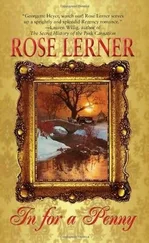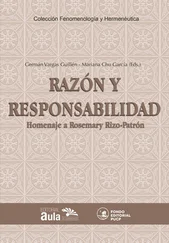On the second floor, in the strangely empty Hall of African Peoples, I stopped him and apologized, explained that I’d been worried and overreacted, pledged to give his mom a glowing report, and asked him to pick out whatever he wanted from the gift shop, where we proceeded together hand in hand; Roberto forgave me, but his excitement now was muted. I bought him a sixty-dollar T-rex puzzle because I would make strong six figures and the city would soon be underwater. I made sure the cashier removed the price tag, and I also purchased a couple of packets of astronaut ice cream, which Roberto had never tried.
We ate the freeze-dried Neapolitan stuff — a food from the future of the past, taken to space only once on Apollo 7 , 1968—on a bench in front of the museum. It was an unseasonably warm day and the bizarreness and novelty of the food cracked Roberto up, restored his spirits; I broke off my chocolate and traded it for a fragment of his strawberry, which he found gross. He showed me his various drawings, which I praised, we discussed some additions to our diorama, and I told him how he’d one day be a famous paleontologist. His energy was back and it was as if I’d never caused a scene. We had a nice lunch at Shake Shack near the museum — a fast-food restaurant where the meat is carefully sourced, all the garbage compostable — and I returned him smiling and full of dinosaur factoids to Anita by four.
* * *
The baby octopuses are delivered alive from Portugal each morning and then massaged gently but relentlessly with unrefined salt until their biological functions cease; according to the menu, they are massaged “five hundred times.” The beak is removed and the small eyes are pushed out from behind. The corpses are slowly poached and then served with a sauce composed of sake and yuzu juice. It is the restaurant’s signature dish and so plate after plate of the world’s most intelligent invertebrate infants were being conducted from kitchen to table by the handsome, agile waitstaff. There were three on the plate finally placed before us, and my agent and I, after a moment of admiration and guilty hesitation, simultaneously dipped and ingested the impossibly tender things entire.
I had arrived for what would be an outrageously expensive celebratory meal still incredulous about the amount of money a publisher was willing to pay me to dilate my story, but, after we ordered and before the octopus and flights of bluefin arrived, I had quickly signed two copies of a contract. I asked my agent to explain to me once more why anybody would pay such a sum for a book of mine, especially an unwritten one, given that my previous novel, despite an alarming level of critical acclaim, had only sold around ten thousand copies. Since my first book was published by a small press, my agent said, the larger houses were optimistic that their superior distribution and promotion could help a second book do much better than the first. Moreover, she explained, publishers pay for prestige. Even if I wrote a book that didn’t sell, these presses wanted a potential darling of the critics or someone who might win prizes; it was symbolic capital that helped maintain the reputation of the house even if most of their money was being made by teen vampire sagas or one of the handful of mainstream “literary novelists” who actually sold a ton of books. This would have made sense to me in the eighties or nineties, when the novel was more or less still a viable commodity form, but why would publishers, all of whom seemed to be perpetually reorganizing, downsizing, scrambling to survive in the postcodex world, be willing to convert real capital into the merely symbolic? “Keep in mind that your book proposal…” my agent said, and then paused thoughtfully, indicating that she was preparing to put something delicately, “your book proposal might generate more excitement among the houses than the book itself.”
“What do you mean?”
“Well, your first book was unconventional but really well received. What they’re buying when they buy the proposal is in part the idea that your next book is going to be a little more … mainstream. I’m not saying they’ll reject what you submit, although that’s always possible; I’m saying it may have been easier to auction the idea of your next book than whatever you actually draft.”
I loved this idea: my virtual novel was worth more than my actual novel. But if they rejected it, I’d have to give the money back. And yet I planned to spend my advance in advance.
“Also, you have to remember an auction has its own momentum.”
This I understood, or at least recognized, from experience: most desire was imitative desire. If one university wanted to buy your papers, another university would want to buy them, too — consensus emerges regarding your importance. Competition produces its own object of desire; that’s why it makes sense to speak of a “competitive spirit,” a creative deity.
With my chopsticks I lifted and dipped the third and final baby octopus and tried to think as I chewed of a synonym for “tender.” Imitative desire for my virtual novel was going to fund artificial insemination and its associated costs. My actual novel everyone would thrash. After my agent’s percentage and taxes (including New York City taxes, she had reminded me), I would clear something like two hundred and seventy thousand dollars. Or Fifty-four IUIs. Or around four Hummer H2 SUVs. Or the two first editions on the market of Leaves of Grass . Or about twenty-five years of a Mexican migrant’s labor, seven of Alex’s in her current job. Or my rent, if I had rent control, for eleven years. Or thirty-six hundred flights of bluefin, assuming the species held. I swallowed and the majesty and murderous stupidity of it was all about me, coursing through me: the rhythm of artisanal Portuguese octopus fisheries coordinated with the rhythm of laborers’ migration and the rise and fall of art commodities and tradable futures in the dark galleries outside the restaurant and the mercury and radiation levels of the sashimi and the chests of the beautiful people in the restaurant — coordinated, or so it appeared, by money. One big joke cycle. One big totaled prosody.
“Of course, as we talked about, there are risks to taking a big advance — because if the book doesn’t sell at all, nobody’s going to want to work with you again.”
A quiet set of couples left the table beside us and almost instantly a loud set of couples took their place; the men, both around my age, both dressed in dark suits, both in great shape, were talking about a friend or colleague in common, mocking him for drunkenly spilling red wine on a priceless couch or rug; the women, eyes lined with shadow, were passing a cell phone back and forth, admiring a picture of something. I was confident my book wouldn’t sell.
“Just remember this is your opportunity to reach a much wider audience. You have to decide who you want your audience to be, who you think it is,” my agent said, and what I heard was: “Develop a clear, geometrical plot; describe faces, even those at the next table; make sure the protagonist undergoes a dramatic transformation.” What if only his aorta undergoes change, I wondered. Or his neoplasm. What if everything at the end of the book is the same, only a little different?
The sake-based cocktails were making the adjacent quartet increasingly garrulous. Investment bankers or market analysts in their twenties, whose proximity was particularly unwelcome since I was crossing my art with money more explicitly than ever, trading on my future. The first draft was due in a year.
“I think of my audience as a second person plural on the perennial verge of existence,” I wanted to say. A waiter shook the bottle to mix the sediment and turn the sake white.
Читать дальше










